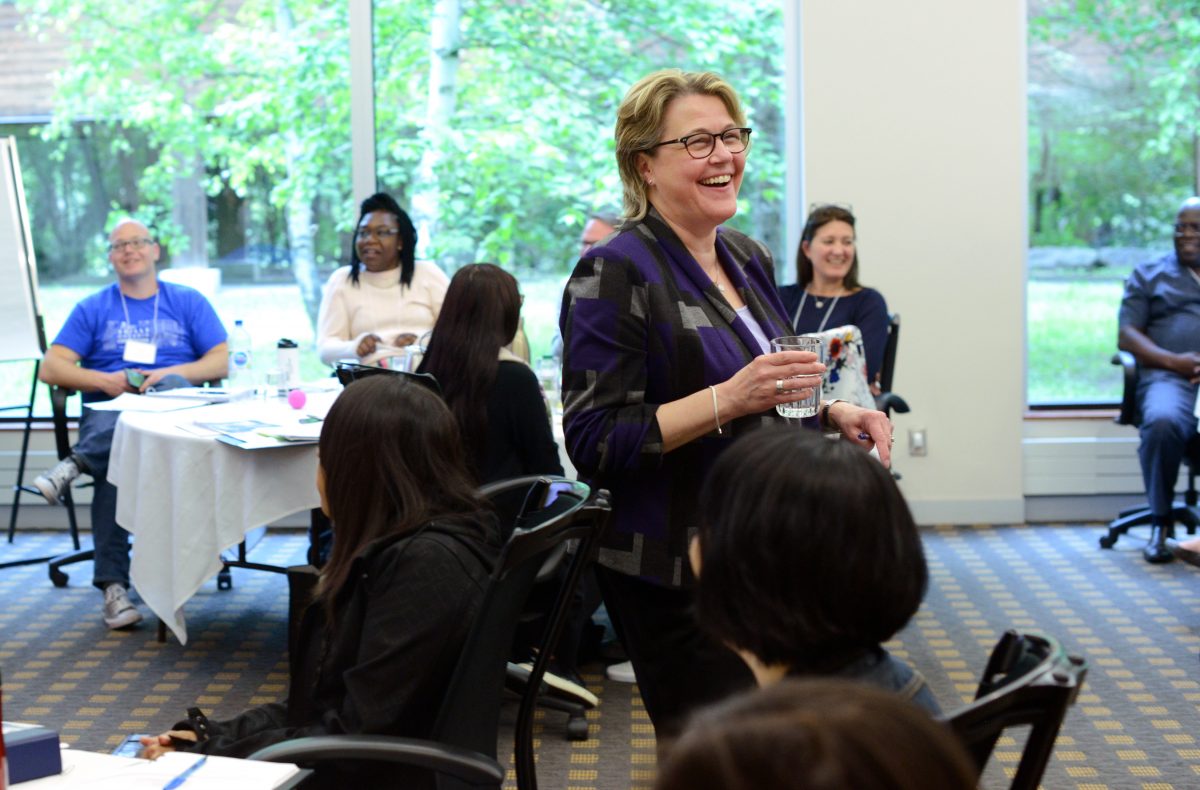In early June, Metcalf invited Jodi Sturgeon to join our 2018 Toronto Sector Skills Academy as a guest faculty member. Jodi is President of PHI, America’s leading authority on the direct care workforce. In the United States, direct care workers, home care aides, and certified nursing assistants perform a role similar to personal support workers in Canada.
Based on her experience at PHI, Jodi presented a unique case study to Toronto Sector Skills Academy (TSSA) members on how to improve employment opportunities for marginalized workers and elevate standards across an entire industry. Her insights are valuable both for professionals in the workforce development sector and also for all of us dealing with the implications of North America’s aging population. In the U.S., 10,000 people turn 65 daily and the number of people living past the age of 85 is expected to triple over the next 10 years. In Ontario, currently 16.4% of our population is over the age of 64. By 2041, that percentage is expected to double to almost one third of the Ontario’s population or 4.6 million seniors. The direct care field is rapidly growing and is projected to add more jobs than any other single occupation in the United States. At the same time, because working conditions are difficult and the pay is low, there is a chronic shortage of trained staff.
PHI is a remarkable organization. Not only has it had success in moving individuals out of poverty through its training programs, it has improved standards of care and achieved reforms in health care and labour policy through its research and advocacy, including contributing to the Affordable Care Act. It is active across the U.S. and has provided service to some 400,000 long-term facility care staff, direct care workers, and clients.
PHI, short for Paraprofessional Healthcare Institute, works with a variety of long-term care facilities, including nursing facilities, nursing homes, assisted living spaces, and private homes. Training of direct care workers is provided either in its own classrooms or in consultation with existing home care providers. Through its close partnership with Cooperative Home Care Associates (CHCA), a worker-owned home care agency in the Bronx, PHI is able to leverage its on-the-ground understanding of the realities of home care delivery to improve its curriculum and policy work.
PHI’s training focuses on moving some of the most marginalized workers out of poverty. Prior to entering direct care training programs, most applicants have been living well below the poverty line. They are overwhelmingly female and very often immigrants, with English as a second language. On average, they are around 38 years old, possess limited formal education, and rely on public benefits to make ends meet. Many have childcare responsibilities as well.
In our wide-ranging conversation with Jodi, she began by talking about how providing opportunity is integral to PHI’s organizational culture.



